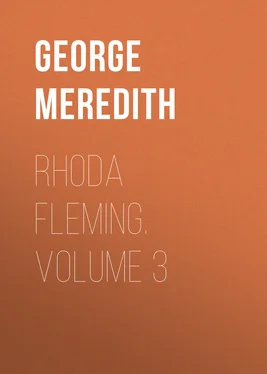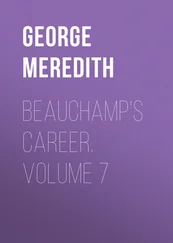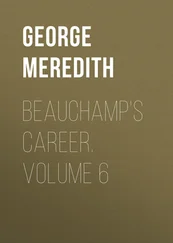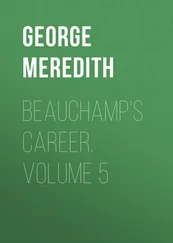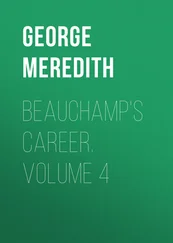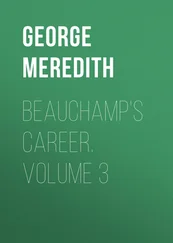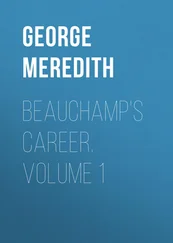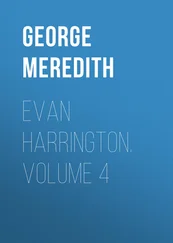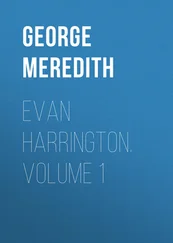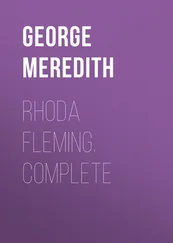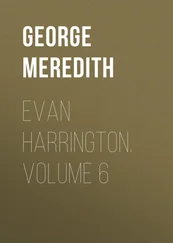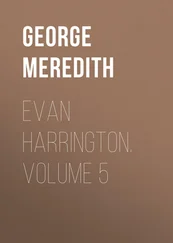George Meredith - Rhoda Fleming. Volume 3
Здесь есть возможность читать онлайн «George Meredith - Rhoda Fleming. Volume 3» — ознакомительный отрывок электронной книги совершенно бесплатно, а после прочтения отрывка купить полную версию. В некоторых случаях можно слушать аудио, скачать через торрент в формате fb2 и присутствует краткое содержание. Жанр: foreign_prose, literature_19, foreign_antique, на английском языке. Описание произведения, (предисловие) а так же отзывы посетителей доступны на портале библиотеки ЛибКат.
- Название:Rhoda Fleming. Volume 3
- Автор:
- Жанр:
- Год:неизвестен
- ISBN:нет данных
- Рейтинг книги:3 / 5. Голосов: 1
-
Избранное:Добавить в избранное
- Отзывы:
-
Ваша оценка:
- 60
- 1
- 2
- 3
- 4
- 5
Rhoda Fleming. Volume 3: краткое содержание, описание и аннотация
Предлагаем к чтению аннотацию, описание, краткое содержание или предисловие (зависит от того, что написал сам автор книги «Rhoda Fleming. Volume 3»). Если вы не нашли необходимую информацию о книге — напишите в комментариях, мы постараемся отыскать её.
Rhoda Fleming. Volume 3 — читать онлайн ознакомительный отрывок
Ниже представлен текст книги, разбитый по страницам. Система сохранения места последней прочитанной страницы, позволяет с удобством читать онлайн бесплатно книгу «Rhoda Fleming. Volume 3», без необходимости каждый раз заново искать на чём Вы остановились. Поставьте закладку, и сможете в любой момент перейти на страницу, на которой закончили чтение.
Интервал:
Закладка:
"I have yet to learn that I am engaged to her," he said. Mrs. Lovell gave him a fixed look,—
"She has a half-brother."
He stepped away in a fury.
"Devil!" he muttered, absolutely muttered it, knowing that he fooled and frowned like a stage-hero in stagey heroics. "You think to hound me into this brutal stupidity of fighting, do you? Upon my honour," he added in his natural manner, "I believe she does, though!"
But the look became his companion. It touched and called up great vanity in his breast, and not till then could he placably confront the look. He tried a course of reading. Every morning he was down in the library, looking old in an arm-chair over his book; an intent abstracted figure.
Mrs. Lovell would enter and eye him carelessly; utter little commonplaces and go forth. The silly words struck on his brain. The book seemed hollow; sounded hollow as he shut it. This woman breathed of active striving life. She was a spur to black energies; a plumed glory; impulsive to chivalry. Everything she said and did held men in scales, and approved or rejected them.
Intoxication followed this new conception of her. He lost altogether his right judgement; even the cooler after-thoughts were lost. What sort of man had Harry been, her first husband? A dashing soldier, a quarrelsome duellist, a dull dog. But, dull to her? She, at least, was reverential to the memory of him.
She lisped now and then of "my husband," very prettily, and with intense provocation; and yet she worshipped brains. Evidently she thirsted for that rare union of brains and bravery in a man, and would never surrender till she had discovered it. Perhaps she fancied it did not exist. It might be that she took Edward as the type of brains, and Harry of bravery, and supposed that the two qualities were not to be had actually in conjunction.
Her admiration of his (Edward's) wit, therefore, only strengthened the idea she entertained of his deficiency in that other companion manly virtue.
Edward must have been possessed, for he ground his teeth villanously in supposing himself the victim of this outrageous suspicion. And how to prove it false? How to prove it false in a civilized age, among sober- living men and women, with whom the violent assertion of bravery would certainly imperil his claim to brains? His head was like a stew-pan over the fire, bubbling endlessly.
He railed at her to Algernon, and astonished the youth, who thought them in a fair way to make an alliance. "Milk and capsicums," he called her, and compared her to bloody mustard-haired Saxon Queens of history, and was childishly spiteful. And Mrs. Lovell had it all reported to her, as he was-quite aware.
"The woman seeking for an anomaly wants a master."
With this pompous aphorism, he finished his reading of the fair Enigma.
Words big in the mouth serve their turn when there is no way of satisfying the intelligence.
To be her master, however, one must not begin by writhing as her slave.
The attempt to read an inscrutable woman allows her to dominate us too commandingly. So the lordly mind takes her in a hard grasp, cracks the shell, and drawing forth the kernel, says, "This was all the puzzle."
Doubtless it is the fate which women like Mrs. Lovell provoke. The truth was, that she could read a character when it was under her eyes; but its yesterday and to-morrow were a blank. She had no imaginative hold on anything. For which reason she was always requiring tangible signs of virtues that she esteemed.
The thirst for the shows of valour and wit was insane with her; but she asked for nothing that she herself did not give in abundance, and with beauty super-added. Her propensity to bet sprang of her passion for combat; she was not greedy of money, or reckless in using it; but a difference of opinion arising, her instinct forcibly prompted her to back her own. If the stake was the risk of a lover's life, she was ready to put down the stake, and would have marvelled contemptuously at the lover complaining. "Sheep! sheep!" she thought of those who dared not fight, and had a wavering tendency to affix the epithet to those who simply did not fight.
Withal, Mrs. Lovell was a sensible person; clearheaded and shrewd; logical, too, more than the run of her sex: I may say, profoundly practical. So much so, that she systematically reserved the after-years for enlightenment upon two or three doubts of herself, which struck her in the calm of her spirit, from time to time.
"France," Edward called her, in one of their colloquies.
It was an illuminating title. She liked the French (though no one was keener for the honour of her own country in opposition to them), she liked their splendid boyishness, their unequalled devotion, their merciless intellects; the oneness of the nation when the sword is bare and pointing to chivalrous enterprise.
She liked their fine varnish of sentiment, which appears so much on the surface that Englishmen suppose it to have nowhere any depth; as if the outer coating must necessarily exhaust the stock, or as if what is at the source of our being can never be made visible.
She had her imagination of them as of a streaming banner in the jaws of storm, with snows among the cloud-rents and lightning in the chasms:– which image may be accounted for by the fact that when a girl she had in adoration kissed the feet of Napoleon, the giant of the later ghosts of history.
It was a princely compliment. She received it curtseying, and disarmed the intended irony. In reply, she called him "Great Britain." I regret to say that he stood less proudly for his nation. Indeed, he flushed. He remembered articles girding at the policy of peace at any price, and half felt that Mrs. Lovell had meant to crown him with a Quaker's hat. His title fell speedily into disuse; but, "Yes, France," and "No, France," continued, his effort being to fix the epithet to frivolous allusions, from which her ingenuity rescued it honourably.
Had she ever been in love? He asked her the question. She stabbed him with so straightforward an affirmative that he could not conceal the wound.
"Have I not been married?" she said.
He began to experience the fretful craving to see the antecedents of the torturing woman spread out before him. He conceived a passion for her girlhood. He begged for portraits of her as a girl. She showed him the portrait of Harry Lovell in a locket. He held the locket between his fingers. Dead Harry was kept very warm. Could brains ever touch her emotions as bravery had done?
"Where are the brains I boast of?" he groaned, in the midst of these sensational extravagances.
The lull of action was soon to be disturbed. A letter was brought to him.
He opened it and read—
"Mr. Edward Blancove,—When you rode by me under Fairly Park, I did not know you. I can give you a medical certificate that since then I have been in the doctor's hands. I know you now. I call upon you to meet me, with what weapons you like best, to prove that you are not a midnight assassin. The place shall be where you choose to appoint. If you decline I will make you publicly acknowledge what you have done. If you answer, that I am not a gentleman and you are one, I say that you have attacked me in the dark, when I was on horseback, and you are now my equal, if I like to think so. You will not talk about the law after that night. The man you employed I may punish or I may leave, though he struck the blow. But I will meet you. To-morrow, a friend of mine, who is a major in the army, will be down here, and will call on you from me; or on any friend of yours you are pleased to name. I will not let you escape. Whether I shall face a guilty man in you, God knows; but I know I have a right to call upon you to face me.
"I am, Sir,
"Yours truly,
"Robert Eccles."
Edward's face grew signally white over the contents of this unprecedented challenge. The letter had been brought in to him at the breakfast table. "Read it, read it," said Mrs. Lovell, seeing him put it by; and he had read it with her eyes on him.
Читать дальшеИнтервал:
Закладка:
Похожие книги на «Rhoda Fleming. Volume 3»
Представляем Вашему вниманию похожие книги на «Rhoda Fleming. Volume 3» списком для выбора. Мы отобрали схожую по названию и смыслу литературу в надежде предоставить читателям больше вариантов отыскать новые, интересные, ещё непрочитанные произведения.
Обсуждение, отзывы о книге «Rhoda Fleming. Volume 3» и просто собственные мнения читателей. Оставьте ваши комментарии, напишите, что Вы думаете о произведении, его смысле или главных героях. Укажите что конкретно понравилось, а что нет, и почему Вы так считаете.
